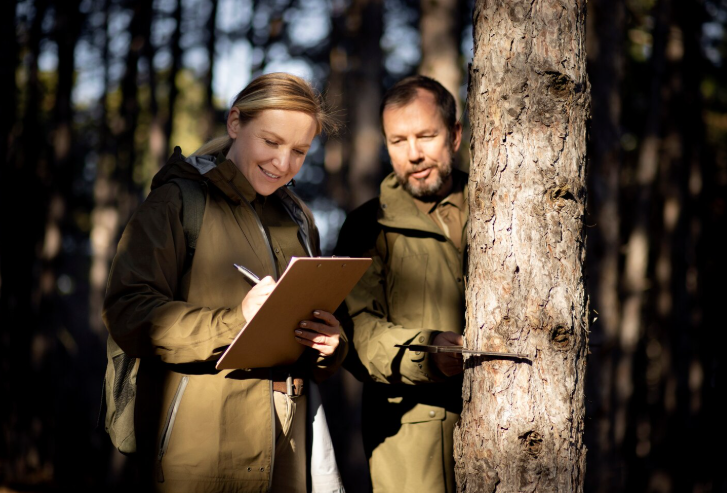Hunting Season Nova Scotia 2026: Open Seasons, Bag Limits, and Preparation Tips
Crisp mornings and quiet forests mark the start of hunting season in Nova Scotia, a long-standing tradition for many Canadians. From deer to waterfowl and small game, the 2026 season brings fresh opportunities and a few updates worth knowing.
This guide covers everything from new regulations and licensing to official season dates and preparation tips. If you’re planning your next trip for hunting in Nova Scotia Canada, this overview will help you stay informed, hunt responsibly, and make the most of another unforgettable hunting season Nova Scotia.
Key Changes for Hunting in Nova Scotia in 2026
Nova Scotia is updating its hunting regulations to give residents more chances to enjoy the outdoors while keeping safety a top priority. Here are the main changes for 2026:
Lower minimum age: Hunters can now apply for deer and bear licences starting at age 12 instead of 16. Youth under 18 must still hunt under direct adult supervision.
More open Sundays: The number of Sundays when hunting is allowed has increased by 11 additional days each year, giving weekend hunters and families more chances to head outdoors.
Longer deer season: The general deer hunting season now includes one extra week at the end, helping manage populations and offering more opportunities to hunt responsibly.
Official Season Dates and Limits by Species
Below is an overview of the 2026 hunting season in Nova Scotia — including estimated opening dates and bag limits for major game categories.
Big Game
Hunting big game such as deer and black bear requires a valid licence and compliance with specific season dates. These hunts are an important part of wildlife management, balancing population health with recreation.
Big Game Bag Limits and Open Seasons (2025)
Species | Type \ Category | Season | Bag Limit |
Deer | Archery & Muzzleloader | Sept 8 – Dec 13, 2025 (Sept 8 – 20 bow-only) | 1 |
Youth | Oct 17 – Oct 25, 2025 | 1 | |
General | Oct 31 — Dec 13, 2025 | 1 | |
Bear | Hunting | Sept 8 – Dec 6, 2025 | 1 |
Snaring | Oct 1 – Dec 6, 2025 | 2 |
Small Game and Other Harvestable Wildlife
Small game hunting in Nova Scotia includes species like grouse, hare, and pheasant. These hunts are often more accessible and provide long, flexible seasons that are perfect for beginners and seasoned hunters alike.
Small Game and Other Harvestable Wildlife (2025–2026)
Species | Season | Area | Bag Limit |
Small Game | |||
Snowshoe Hare | Nov 1, 2025 – Feb 28, 2026 (Hunting and Snaring) | — | None |
Ruffed Grouse | Oct 1 – Dec 31, 2025 | — | 5 per day / 10 possession |
Ring-Necked Pheasant | Nov 1 – Dec 15, 2025 | Annapolis, Kings, Hants | 2 per day / 4 possession |
Oct 1 – Dec 15, 2025 | Other counties | ||
Other Harvestable Wildlife | |||
Coyote | Jan 1 – Dec 31, 2025 | — | None |
Bullfrog | Jul 15 – Sep 30, 2025 | — | None |
Crow | Sep 1, 2025 – Mar 31, 2026 | — | None |
Red Squirrel | Nov 1, 2025 – Feb 28, 2026 | — | None |
Furharvesting Seasons
Furharvesting in Nova Scotia includes trapping and snaring species such as beaver, muskrat, and coyote. These are carefully managed to protect wildlife and keep healthy populations for the years ahead.
Fur Harvester Bag Limits and Open Seasons (2025)
Species | Season | Area | Big Limit |
Beaver | Nov 1, 2025 – Mar 31, 2026 | Cape Breton, Inverness, Richmond, Victoria | 30 |
Nov 1, 2025 – Mar 31, 2026 | Antigonish, Colchester, Cumberland, Guysborough, Halifax, Hants, Pictou | 20 | |
Nov 1, 2025 – Mar 31, 2026 | Annapolis, Kings, Lunenburg | 20 | |
Nov 1, 2025 – Mar 31, 2026 | Digby, Queens, Shelburne, Yarmouth | 20 | |
Bobcat | Nov 1, 2025 – Feb 28, 2026 | — | 5 |
Otter | Nov 1, 2025 – Feb 28, 2026 | — | No limit |
Mink, Muskrat, Red Squirrel, Skunk, Weasel | Nov 1, 2025 – Mar 31, 2026 | — | No limit |
Fox and Coyote | Oct 15, 2025 – Mar 31, 2026 | — | No limit |
Raccoon | Trapping: Nov 1, 2025 – Mar 31, 2026 Hunting: Oct 15, 2025 – Mar 31, 2026 | — | No limit |
Lynx, Marten, Fisher | Closed season | ||
Nova Scotia Hunting Licensing, Permits, and Regulations You Must Know
Before setting out for the hunting season in Nova Scotia, every hunter needs to understand the province’s core rules. Let’s break it down.
Wildlife Resources Card (WRC)
The WRC is the cornerstone of hunting in Nova Scotia. You can’t purchase a hunting licence without one. To get it:
Complete a Hunter Education Course (covers firearm safety, ethics, and wildlife identification).
Pass the Canadian Firearms Safety Course if you plan to use rifles or shotguns. Bowhunters can qualify via archery training.
Apply online through the province’s portal; the card is mailed and valid for several years.
Think of the WRC as your permanent ID in the hunting system—it tracks your draws, licences, and harvest reports.
Hunting Licences and Stamps
Once you have the Wildlife Resources Card (WRC), you must buy the appropriate licence each season. Each is valid only for that species and season (no carryover).
Small Game Licence: Required for grouse, hare, pheasant, and similar species. You can get it from DNR offices and all approved vendors.
Deer & Bear Licences: Each is purchased separately. Deer licences allow one animal; antlerless harvests require an additional stamp through a lottery draw. Bear licences allow up to two, with method restrictions (one by snaring). Both are available from DNR offices and selected vendors.
Moose Licence: Available only through a limited-entry draw. Very few tags are issued annually, restricted to residents. Applications are submitted via the Moose Draw Application Portal. Winners are notified by mail, and once Service Nova Scotia and Municipal Relations (SNSMR) receives payment, a Moose Hunting Stamp is mailed directly to the successful applicant.
Furharvester Licence: For trapping or snaring species like beaver, fox, coyote, and mink. Requires specialized training. You can get it only from DNR offices.
Migratory Game Bird Permit: A federal permit under Environment and Climate Change Canada. It must be carried alongside provincial licences when hunting ducks, geese, or other migratory species. You can obtain it through the Government of Canada’s Migratory Game Bird Hunting Permit page or at any Canada Post outlet.
Costs and Access (Residents vs Non-Residents)
Residents pay lower rates and can enter draws for moose or antlerless deer.
Non-Residents (such as visiting Australians) face higher licence fees and cannot apply for moose draws. Deer licences are available, provided you show proof of equivalent hunter education from your home country.
Licence Type | Resident Price (CAD) | Non-Resident Price (CAD) |
Deer Licence | $27.87 + HST | $137.09 + HST |
Bear Licence | $26.57 + HST | $124.52 + HST |
Small Game Licence | $17.26 + HST | $62.30 + HST |
Wildlife Habitat Stamp | $5.15 + HST | $5.15 + HST |
*A resident is:
Someone who lived in Nova Scotia for at least two months prior to applying.
Also includes RCMP/Canadian Armed Forces members stationed/born in NS, foreign diplomatic officers posted in NS, or individuals born in NS who own property there.
Firearms and Archery Rules
Hunters must carry their Possession and Acquisition Licence (PAL) if using firearms. Non-residents can apply for a temporary declaration form at Canadian customs.
Firearms must be unloaded and encased during transport. Ammunition should be stored separately.
Bows and crossbows are permitted but regulated by draw weight and arrow type. Explosive or poisoned tips are strictly prohibited.
Safety Gear Requirements
During all big game firearm seasons, hunters must wear:
400 square inches of blaze orange, visible on chest, back, and head.
Exceptions apply only for waterfowl hunting from blinds where camouflage is essential.
Harvest Reporting
Many big game licences (e.g. deer, bear, moose) carry a mandatory reporting requirement.
Reports must be submitted (online, paper report cards / mail) even if no animal was harvested.

Deadlines vary by species and licence type; for exact dates, please refer to the official Government of Nova Scotia hunting regulations and annual summary documents.
Failure to report is a violation and may block future licence purchases.
Special Permits and Exemptions
Disability Permits allow hunters with mobility limitations to use crossbows or hunt from vehicles under strict conditions.
Landowner Permissions: While Crown land is accessible, private property requires written permission. Trespassing while hunting carries steep fines.
Penalties, Fines & Enforcement
In Nova Scotia, breaking hunting laws carries real consequences—fines, license bans, and more. Below are several common offences and what you might face if convicted:
Failing to submit required reports: If you’re a licence or permit holder and don’t file your hunter or furharvester report when asked—even if you didn’t hunt—you may be fined (starting at around $180) and risk losing your privilege to hold licences later.
Hunting without a licence or in closed season: Taking wildlife without proper permissions or during closed seasons can lead to a ban on applying for licences or permits for 2 years.
Exceeding bag or possession limits: Going over what’s allowed by law can also trigger a 2-year prohibition on obtaining licences.
Using illegal methods (e.g. shining lights): Hunting with lights or other prohibited methods is more serious; a conviction may lead to a 5-year suspension of licence privileges.
How to Prepare Your Hunt?
Planning is the difference between a frustrating hunt and a successful one. Here are some solid steps to get ready for Nova Scotia’s wild.
Scout, Map, and Know the Zone
Start by studying maps and confirming the boundaries of your Wildlife Management Zone. Flag private lands and stick to legal access routes. If cell service fails once you’re in the field, it’s wise to carry a printed map or offline GPS map as backup.

Gear Check
Test every piece of equipment—boots, outerwear, optics, bow or firearm, lights, and pack. Pack basic survival items like a first-aid kit, fire starter, emergency blanket, compass, and extra food and water.
Power in the Field
When hunts stretch over days, a reliable portable power source keeps GPS units, radios, and lighting reliable when you’re far from camp. Are you weighing a portable power station vs power bank?
The former can deliver sustained power. Models like the EcoFlow RIVER 2 Pro Portable Power Station, with its 768Wh capacity, can recharge essential gear multiple times and even support small camp appliances—ideal for longer stays in remote zones.
For shorter outings, a compact power bank may be enough to top up a phone or headlamp once or twice. On a lighter note, the EcoFlow Power Hat adds comfort and function: solar panels capture energy as you move, dual USB ports charge two devices at once, and its IP65 waterproof design makes it reliable in unpredictable weather—all at just 370g.

Safety & Communication
Always tell someone your route, expected check-in times, and fallback plan. Bring multiple ways to communicate—satellite messenger, two-way radio, or GPS beacon.
Final Prep Before You Step Out
The night before, review your packing checklist, confirm your hunting licence and tags are in hand, check weather forecasts, and top up all gear. A moment of calibration in the dark is no time to discover a dead battery or missing permit.
Conclusion
The hunting season Nova Scotia in 2026 promises exciting opportunities for both seasoned hunters and newcomers. With updated age limits, extended deer seasons, and more open Sundays, it’s shaping up to be one of the most rewarding years yet. By staying informed about regulations, respecting wildlife zones, and preparing your gear early, including essentials like a portable power station, you’ll make every trip safer and more enjoyable.
FAQs
Can you hunt deer on Sunday in Nova Scotia?
Yes, but with some limits. In Nova Scotia, deer hunting is allowed on the two Sundays immediately following the last Friday in October, which usually land in early November. For 2026, hunters can also expect 11 additional open Sundays across all legal game seasons, part of a new regulation expanding Sunday access. However, these dates apply province-wide, and it’s essential to confirm which Sundays are approved for your specific zone and game species. The Department of Natural Resources and Renewables updates this schedule annually, so always check before planning your trip to ensure full compliance with provincial hunting laws.
When can you hunt coyotes in Nova Scotia?
Coyote hunting in Nova Scotia is open all year long, from January 1 to December 31, 2025, with no bag limit. This makes it one of the most flexible hunting opportunities in the province. Trapping season for coyotes also runs from October 15, 2025, to March 31, 2026, under furharvesting regulations. Hunters must hold a valid Wildlife Habitat Stamp and comply with firearm laws. Coyotes are most active at dawn and dusk, so those times often offer the best results. Always hunt safely, know your backstop, and avoid heavily populated or agricultural areas when targeting these intelligent and cautious predators.
Can a non-resident hunt in Nova Scotia?
Yes, non-residents can hunt in Nova Scotia, but under specific conditions:
You must hold a valid non-resident hunting licence.
You need proof of having completed a sanctioned hunter education course in your home jurisdiction (or a valid licence issued in the last 5 years).
You must also purchase a Wildlife Habitat Stamp.
Hunting must be done under supervision: a licensed guide or a local resident (age 19+) who has a Special Permit to Guide.
All federal firearms and import/export requirements must also be met if you bring or use a firearm.